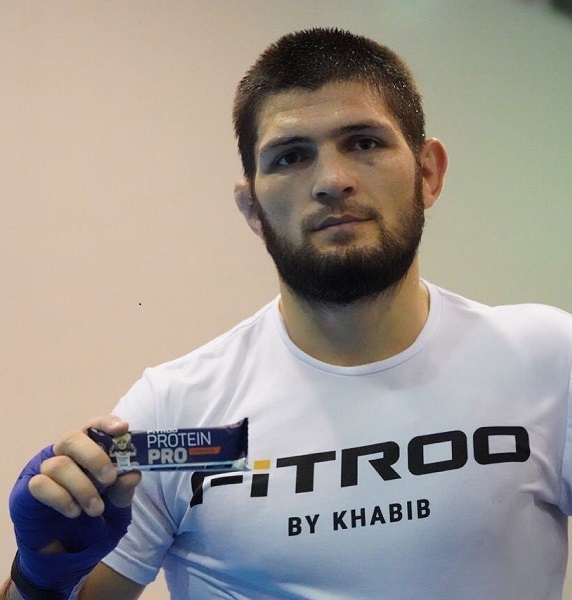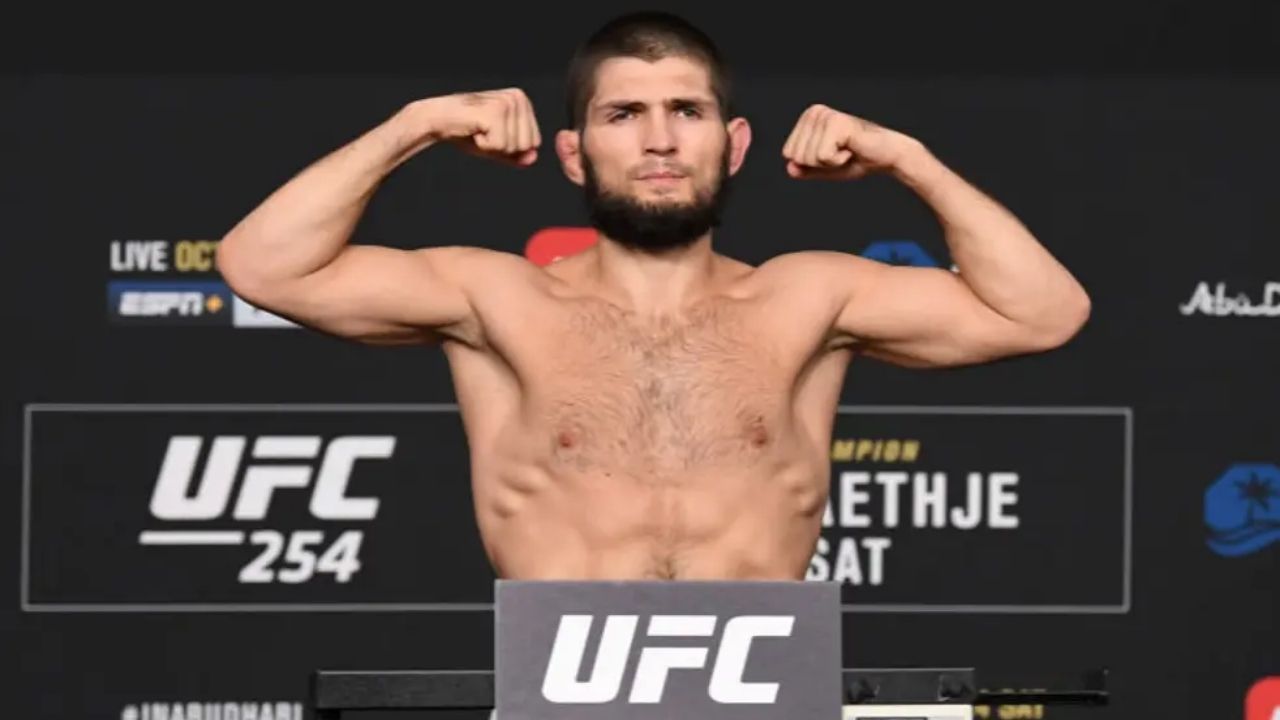When it comes to the world of MMA, few names shine as brightly as Khabib Nurmagomedov. The undefeated Russian fighter has captured the hearts of millions with his incredible skills, discipline, and relentless determination. But one question that often pops up is, what exactly is Khabib Nurmagomedov's nationality? Let's break it down and uncover the fascinating story behind this legendary fighter's roots. Buckle up, because we're about to take you on a journey through his heritage and what makes him such an iconic figure in the world of combat sports.
Khabib Nurmagomedov is not just a name; he’s a phenomenon. With a perfect 29-0 record and an unblemished legacy in the UFC, his achievements have made him a global icon. But beyond the octagon, Khabib’s identity runs deep, tied to his roots, culture, and nationality. Understanding where he comes from gives us a glimpse into the man behind the fighter.
So, what’s the deal with Khabib’s nationality? Is he Russian, Dagestani, or something else entirely? Stick around as we dive into his background, explore his heritage, and uncover the rich tapestry of his identity. It’s more than just a label; it’s a story of pride, tradition, and resilience. Let’s get started!
Read also:Labcorp Call Number Your Ultimate Guide To Contacting Labcorp
Table of Contents
- Biography of Khabib Nurmagomedov
- Khabib Nurmagomedov Nationality: A Closer Look
- Cultural Heritage and Upbringing
- How His Nationality Shapes His Fighting Style
- The Role of Family in Shaping His Identity
- Global Impact and Representation
- Legacy Beyond the Octagon
- Key Stats and Achievements
- Controversies and Challenges
- What’s Next for Khabib?
Biography of Khabib Nurmagomedov
Before we dive into Khabib Nurmagomedov’s nationality, let’s take a moment to understand who he really is. Born on September 20, 1988, in the small village of Sila-Kala in Dagestan, Russia, Khabib grew up in a family deeply rooted in martial arts. His father, Abdulmanap Nurmagomedov, was a renowned sambo and wrestling coach who instilled in Khabib the values of discipline, hard work, and respect from an early age.
Early Life and Training
Growing up in Dagestan, Khabib was surrounded by a culture that revered martial arts. By the age of 5, he was already training in wrestling and sambo under the watchful eye of his father. This rigorous training laid the foundation for his future success in MMA. Dagestan, known for its rich tradition of combat sports, played a pivotal role in shaping Khabib into the fighter he is today.
Biodata of Khabib Nurmagomedov
| Full Name | Khabib Abdulmanapovich Nurmagomedov |
|---|---|
| Birthdate | September 20, 1988 |
| Place of Birth | Sila-Kala, Dagestan, Russia |
| Nationality | Russian (Dagestani heritage) |
| Height | 5'11" (180 cm) |
| Weight | 155 lbs (70 kg) |
Khabib Nurmagomedov Nationality: A Closer Look
Now, let’s address the million-dollar question: What is Khabib Nurmagomedov’s nationality? While many people simply label him as Russian, the truth is a bit more nuanced. Khabib holds Russian citizenship, but his roots are firmly planted in Dagestan, a region in the North Caucasus known for its diverse ethnic groups and rich cultural traditions.
Dagestan is home to numerous ethnicities, and Khabib identifies as Avar, one of the largest ethnic groups in the region. The Avars have a long history of martial prowess, and this heritage is evident in Khabib’s fighting style. So, while his official nationality is Russian, his cultural identity is deeply tied to his Dagestani and Avar roots.
Why Does Nationality Matter?
For Khabib, nationality isn’t just a label; it’s a source of pride and identity. It shapes his worldview, his values, and even his approach to fighting. Understanding his nationality gives us a deeper appreciation for the man behind the fighter and the cultural influences that have shaped his career.
Cultural Heritage and Upbringing
Growing up in Dagestan, Khabib was immersed in a culture that values honor, respect, and tradition. These principles are reflected in his fighting style and his interactions with opponents and fans alike. Dagestan’s rich history of martial arts has been a guiding force in Khabib’s journey, influencing everything from his training methods to his mental approach to combat.
Read also:Addison Raes Nudes The Truth Behind The Rumors And Facts You Need To Know
Here are some key aspects of Khabib’s cultural heritage:
- Respect for Elders: Khabib often emphasizes the importance of respecting elders and mentors, a value deeply ingrained in Dagestani culture.
- Discipline and Hard Work: The rigorous training regimen he followed from a young age reflects the disciplined lifestyle common in Dagestani communities.
- Community and Family: Family plays a central role in Dagestani life, and Khabib’s success is often attributed to the strong support system he has around him.
How His Nationality Shapes His Fighting Style
Khabib’s fighting style is a reflection of his Dagestani heritage. Known for his incredible grappling skills and wrestling prowess, he incorporates techniques that have been passed down through generations in his homeland. Dagestan’s emphasis on ground fighting and submission wrestling has been a key factor in his success in the UFC.
Here’s how his nationality influences his fighting:
- Ground Control: Khabib’s dominance on the mat is a direct result of his extensive training in sambo and wrestling, disciplines that are highly valued in Dagestan.
- Endurance and Stamina: The rigorous physical conditioning he underwent in Dagestan has given him unparalleled endurance, allowing him to dominate opponents in the later rounds.
- Mental Toughness: The mental resilience required to thrive in Dagestani combat sports has translated into Khabib’s unwavering focus and determination in the octagon.
The Role of Family in Shaping His Identity
Family has always been at the heart of Khabib’s journey. His father, Abdulmanap, was not only his coach but also his mentor and guiding force. Tragically, Abdulmanap passed away in 2020, which led to Khabib’s decision to retire from professional fighting. This decision underscores the deep bond Khabib shares with his family and the influence they have had on his life and career.
Khabib’s wife, Fatima, and their children also play a crucial role in his life. They provide him with the support and motivation he needs to continue pushing forward, both inside and outside the octagon.
Global Impact and Representation
Khabib’s success in the UFC has had a profound impact on the global stage. As a Dagestani fighter representing Russia, he has become a symbol of pride for his people. His achievements have inspired countless young athletes in Dagestan and beyond, showing them that with hard work and dedication, anything is possible.
Moreover, Khabib’s representation of his culture and heritage has helped to break down stereotypes and promote a better understanding of the North Caucasus region. Through his actions and words, he has shown the world the values of respect, honor, and discipline that define his identity.
Legacy Beyond the Octagon
While Khabib may have retired from professional fighting, his legacy continues to grow. He has become a motivational speaker, sharing his story and experiences with audiences around the world. His commitment to promoting martial arts and supporting young athletes in Dagestan ensures that his influence will be felt for years to come.
Here are some ways Khabib is leaving a lasting impact:
- Mentorship: Khabib continues to mentor young fighters, helping them develop their skills and achieve their dreams.
- Charity Work: He actively supports charitable causes, particularly those focused on education and sports development in Dagestan.
- Business Ventures: Khabib has ventured into the business world, launching his own brand and expanding his influence beyond the world of combat sports.
Key Stats and Achievements
Khabib’s career is filled with impressive stats and achievements. Here are some highlights:
- Undefeated Record: 29-0, making him one of the few fighters in MMA history to retire with a perfect record.
- UFC Lightweight Champion: Held the title from 2018 to 2020, defeating some of the greatest fighters in the division.
- Most Submissions in UFC History: Khabib holds the record for the most submissions in UFC lightweight history.
Controversies and Challenges
No fighter’s career is without its challenges, and Khabib has faced his fair share of controversies. From post-fight altercations to heated rivalries, he has navigated the ups and downs of professional fighting with grace and resilience. These experiences have only added to his legend, showcasing his ability to overcome adversity and emerge stronger.
What’s Next for Khabib?
While Khabib has officially retired from professional fighting, his journey is far from over. He continues to inspire millions with his story and his dedication to promoting the values of respect and discipline. Whether through mentoring young athletes, expanding his business ventures, or sharing his wisdom with the world, Khabib’s influence will undoubtedly continue to grow.
As we look to the future, one thing is certain: Khabib Nurmagomedov’s legacy will endure, inspiring generations to come. His nationality, heritage, and identity have all played a crucial role in shaping the man he is today, and they will continue to define his legacy for years to come.
Kesimpulan
In conclusion, Khabib Nurmagomedov’s nationality is more than just a label; it’s a testament to his roots, his culture, and his identity. From his upbringing in Dagestan to his undefeated career in the UFC, every aspect of his life has been influenced by his heritage. Understanding his nationality gives us a deeper appreciation for the man behind the fighter and the cultural forces that have shaped his journey.
So, what’s next for Khabib? Whether he continues to inspire through mentorship, business ventures, or public speaking, one thing is clear: his legacy will endure, and his impact on the world of combat sports will be felt for generations to come. Share your thoughts in the comments below, and don’t forget to check out more articles on our site for all things MMA and beyond!


